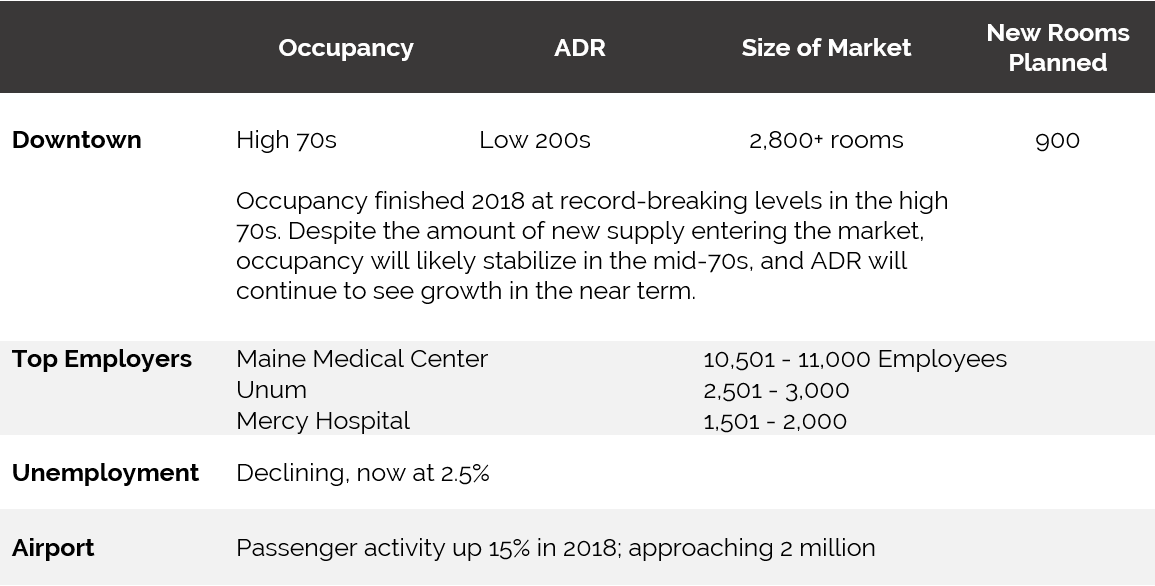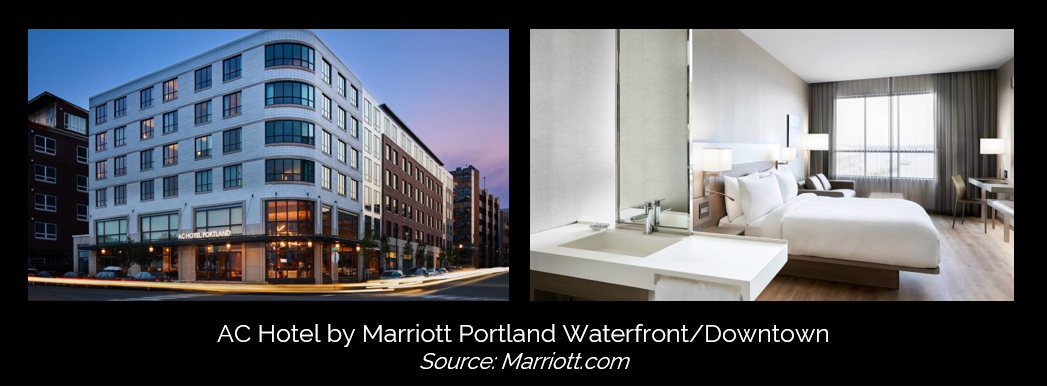Hidden Gem of the Northeast
While much of the tourism in the area takes place in the city’s historic Waterfront and Old Port neighborhoods, hotel development in these areas has largely slowed in recent years due to the lack of vacant land available. Downtown hotel development has shifted primarily to the northeastern and southwestern ends of these neighborhoods. Additionally, recent hotel developments have been part of larger mixed-use developments.Portland’s Key Performance Indicators

Sources: HVS, Maine Department of Labor, U.S. Bureau of Labor Statistics, City of Portland
A notable hotel opening in 2018 was the 178-room AC Hotel by Marriott in the northeast edge of the Old Port neighborhood. The opening of this hotel led to a nearly 12% increase in room supply among upscale, upper-upscale, and luxury properties in the market. Despite this increase in supply, these product classes still finished the year at record occupancy, average daily rate, and RevPAR levels.

Despite the limited impact of the AC Hotel by Marriott on market key performance indicators, new supply will become a growing threat in this market. Over the next three years, Downtown Portland’s hotel room supply will increase over 30%. Upcoming supply in this market will include both branded and boutique hotels, such as Cambria, Aloft, West Elm, and Marriott Tribute Portfolio.
To maintain this staggering amount of growth and development, the City of Portland recently introduced impact fees on January 1, 2019, to fund infrastructure improvements and other municipal services. While these impact fees apply to any new development or expansion from residential to industrial developments, the new fees will add a cost of over $3,000 per key to development and permitting costs for hotels. While this may taper some future new supply development in the Downtown Portland market, the revenue from these impact fees will allow the City to fund necessary upgrades to handle the over eight million visitors annually.